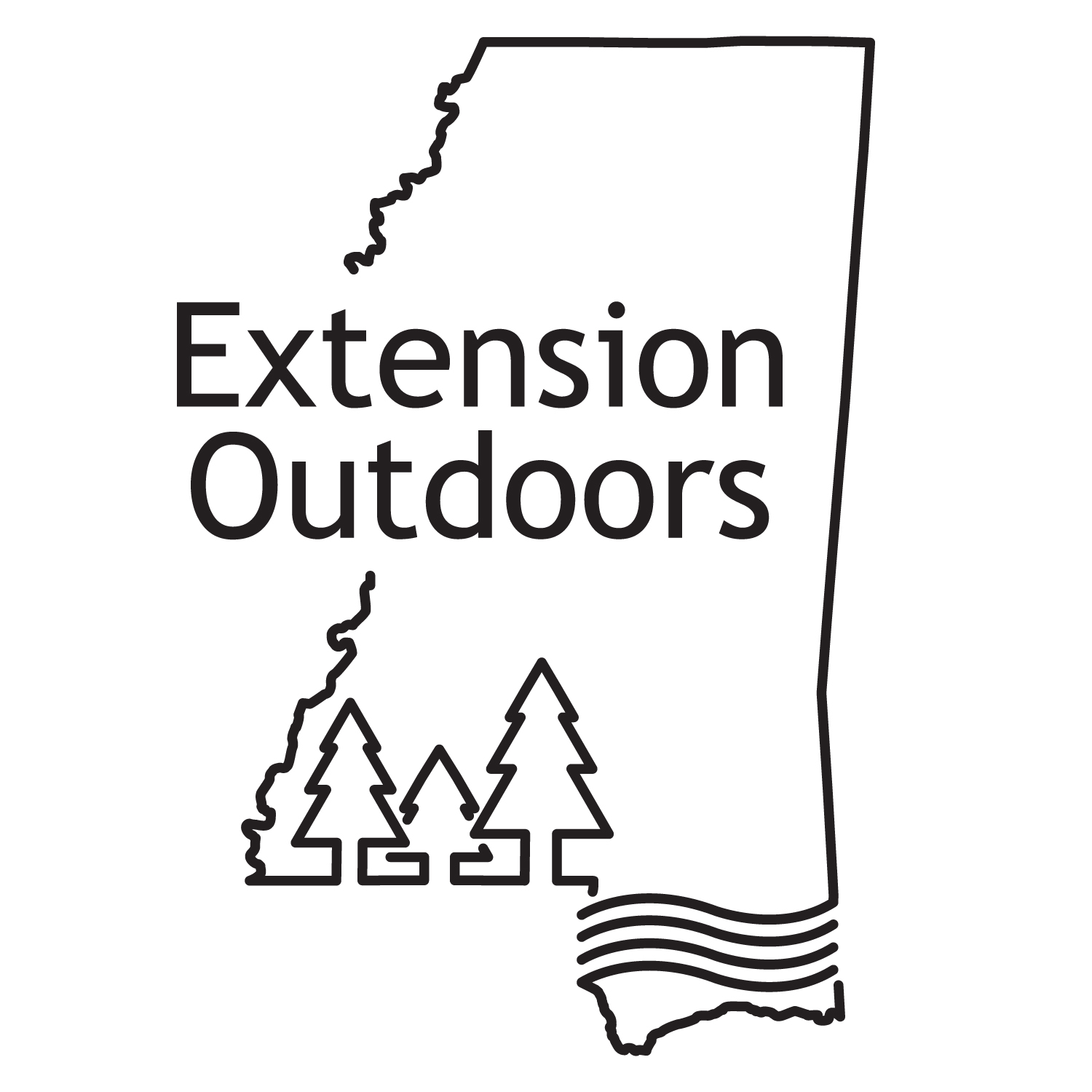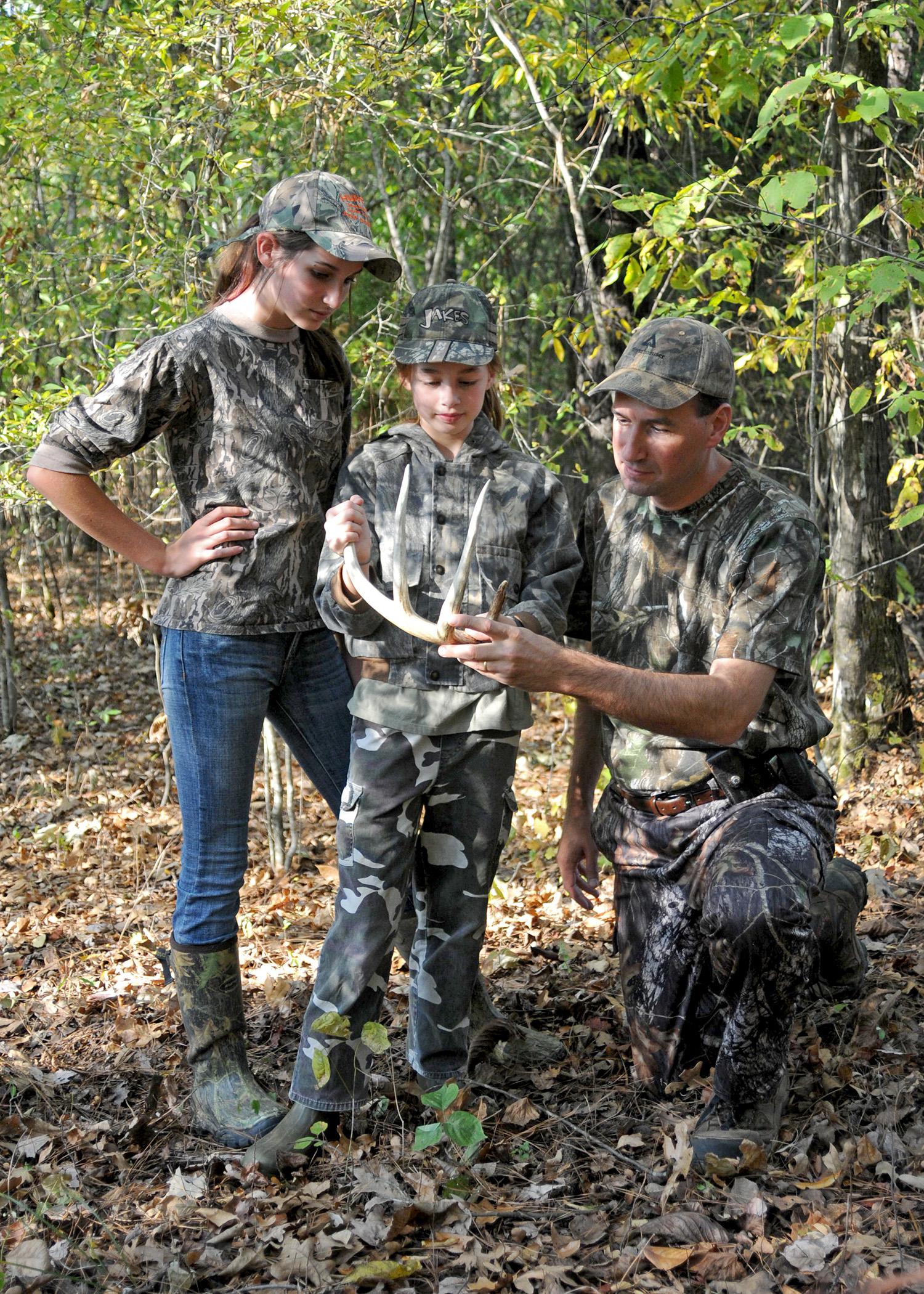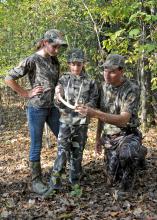Information Possibly Outdated
The information presented on this page was originally released on October 31, 2014. It may not be outdated, but please search our site for more current information. If you plan to quote or reference this information in a publication, please check with the Extension specialist or author before proceeding.
Hunt responsibly to sustain future wildlife
By James E. “Jim” Miller
Professor Emeritus, Department of Wildlife Fisheries and Aquaculture
MSU Extension Service
MISSISSIPPI STATE -- Hunting is about individual responsibility. Aldo Leopold, the father of wildlife management, said, “A particular virtue in wildlife ethics is that the hunter ordinarily has no gallery to applaud or disapprove of his conduct. Whatever his acts, they are dictated by his own conscience, rather than by a mob of onlookers. It is difficult to exaggerate the importance of this fact.”
I am one of the 19.3 million hunters in the United States who appreciate and enjoy fair-chase hunting. In the last century, however, American perceptions about hunting have changed dramatically.
As Americans moved from rural to urban settings, direct connections to the land were severed. Common outdoor activities, such as hunting, were no longer recognized by many as a natural part of everyday life. Many urban dwellers understand very little about where food comes from, aside from the grocery store, or the critical importance of wildlife management.
Despite this lack of understanding, recent national surveys indicate that most people desire clean air, clean water and sustainable wildlife populations. As a natural resources management professional for almost 50 years now, it is clear to me that wildlife management -- especially responsible hunting -- is absolutely essential to the future stewardship of diverse and sustainable wildlife populations for all Americans to enjoy.
A national program called Conservation Leaders for Tomorrow introduces non-hunting wildlife and fisheries undergraduate and graduate students and natural resources agency professionals to the environmental, economic and social values associated with responsible hunting. These are critical elements of hunting that need to be well understood if we are to be able to support wildlife conservation, now and in the future.
Unfortunately, many current televised outdoor shows expose viewers to irresponsible hunting practices that could reduce public acceptance and inadvertently provide fuel to support anti-hunting debates. These practices include baiting, using animal enclosures and shooting drugged or sick animals. These demonstrations do not represent the actions of the vast majority of hunters.
Knowledge about responsible hunting is best learned in the company of a responsible hunter or hunters willing to be mentors. It stimulates an interest in learning the significance of becoming a good steward who cares about the future of wild things and wild places. Here are a few important practices to consider.
First and foremost, practice firearms safety and responsibility for self and for those with whom you hunt. Selecting appropriate hunting equipment, as well as practice, proficiency and safe handling of that equipment, are of paramount importance to responsible hunting for various game species.
Second, follow the law before every hunting opportunity. This includes purchasing appropriate hunting licenses and permits, obtaining essential equipment to make it an enjoyable and legal experience, and knowing the respective game laws for the species being pursued.
Third, observe and respect nature. Understand the interrelationships among wildlife species -- hunted and non-hunted -- and their habitats. Only 12.5 percent of all wildlife species are considered game species and are lawfully hunted in the U.S.
Finally, understand that fair-chase hunting is not so much about the amount of game you take home, but the amount of time and effort invested and the observations made in obtaining it.
I treasure and enjoy everything about hunting: the planning and preparation; the sights, sounds, and smells; the privilege of observing wildlife behavior; the scouting; the challenge and thrill of the chase; the skill of properly cleaning and preparing an organic feast for the table; the reverence for life itself; the enhanced appreciation for the species hunted; and the memories of time spent with family members, friends and respected colleagues.
The trophies from my hunts over the years are the memories of the observations made during the hunt and the camaraderie with those whom it has been my pleasure to hunt, rather than the size or amount of the harvest.
The future of responsible fair-chase hunting, of wildlife conservation and the sustainability of wild things and wild places for all Americans is a heritage worth protecting and sustaining. Those of us who appreciate fair-chase hunting have a responsibility and a commitment to serve as mentors to help future hunters and conservationists learn to appreciate the many values of hunting. What we leave behind as evidence of our stewardship will be our legacy to future generations.
Contact: Dr. Jim Miller, 662-325-2619

Editor’s Note: Extension Outdoors is a column authored by several different experts in the Mississippi State University Extension Service.







